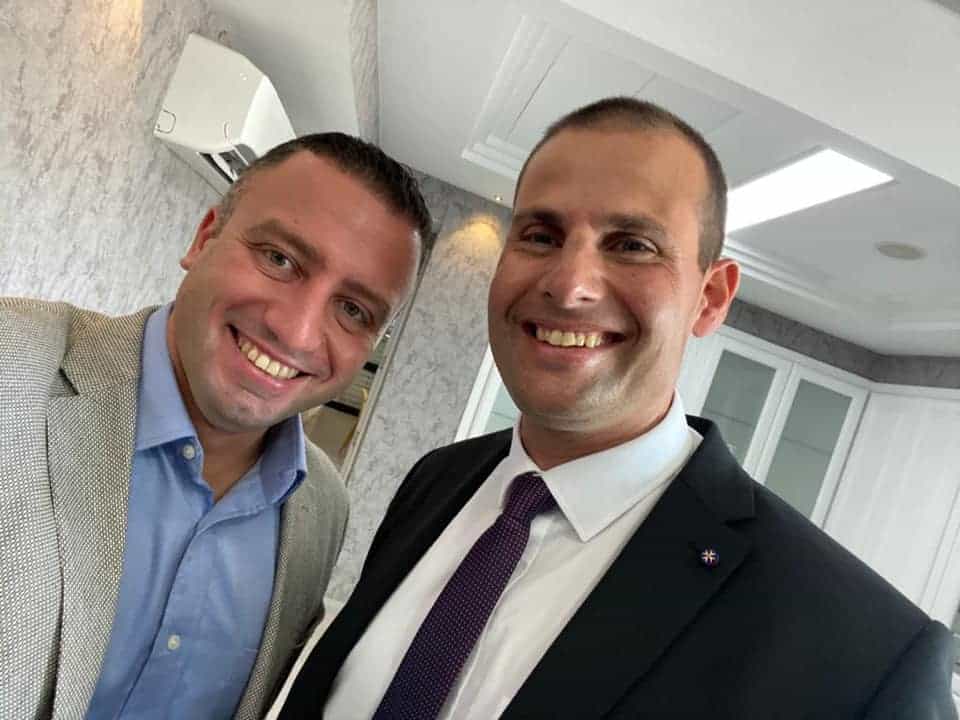
Robert Abela reacted to a suggestion from the Parliamentary Speaker Anġlu Farrugia by saying he’s “seriously considering” it. The qualifier ‘seriously’ is either over-compensation or a slip of the tongue betraying the prime minister’s habit of treating suggestions from others with utter contempt.
Back story. That grotesque man-child Clayton Bartolo sits on Parliament’s Public Accounts Committee. A witness summoned to testify in front of the committee blurted out that the minister sitting on the committee texted him in advance of the meeting the questions he would be asked. Opposition MPs went ballistic pointing out, rather significantly, that if this had been a court the tipping off of a witness in this way would be a crime.
I say significantly because Parliament makes it a point to behave as if it was a serious institution. It treats witnesses in the same way that the courts do. Except that the people asking the questions in Parliament are not like officials of a court: they’re clowns. Clayton Bartolo is.
Clayton Bartolo never understood that his role as a member of the Public Accounts Committee is to scrutinise government spending on behalf of the public and his constituents. He thinks his job is to protect the government from that scrutiny. In other words, he betrays the very mission of the committee he’s part of.
Anġlu Farrugia figured Clayton Bartolo is conflicted. Bartolo sits on the PAC but he also sits in the cabinet of ministers. That’s why he can’t hold the government to account because he is the government. Perhaps, Anġlu Farrugia said, ministers should not sit on the PAC.
Robert Abela conceded this may be a problem and he said he’s “seriously considering” taking ministers off the team at the PAC.
This is a reluctant concession of a bigger truth. Because though not all MPs elected on the Labour Party ticket are ministers they are nearly all on the payroll of the government. They sit on this and that board, or work for this or that agency, or are consulting for this or that department. Almost all of them have their livelihood hugely invested in the government and have every motivation to cover up for it.
Replacing Clayton Bartolo with another government official who also happens to be an MP will change nothing to the independence and capacity of MPs belonging to the majority to retain some form of autonomy from the government they support.
I grant you that not everyone is such an infant as Clayton Bartolo and some MPs would not resort to such blatantly offensive behaviour in defence of the government as fixing the evidence given by a witness. But this is not about holding congenital idiots at bay. Unfortunately, idiocy is an incurable disease. This is about having a public accounts committee with MPs who are motivated to do their job of keeping the government in check.
If anyone is to “think seriously” about this, it’s not just the PAC that has the role of scrutinising the government and should therefore be independent of it. The PAC is merely an organ of Parliament. Parliament has the role of scrutinising the government and should therefore be independent of it.
There’s only one way to do that. Ministers should not only not sit on the PAC. Ministers should not be members of parliament. They should only be in Parliament to answer MPs’ questions and to give account of themselves and their conduct.
This may sound strange but it’s normal. There’s the democratic world and then there’s our system which is a colonial inheritance. Our system of having Ministers picked from and remaining in Parliament is the real exception. It comes from Westminster which has some 650 seats. In the UK, of a government majority of over 325 seats, only about 60 are government officials. The remaining MPs from all sides of the House, including MPs belonging to the majority are full-time Parliamentarians. The anomaly of mixing up the executive with the legislature the way the British do is at least workable there because the numbers allow it.
Here they don’t. We have an 80-seat Parliament. Nearly 50 vote for the government and nearly 50 work for it. Government scrutiny is a job reserved for Opposition MPs who in any case near to earn a living outside Parliament because they’re paid a mere pittance to do one of the most important jobs our Constitution devises.
This is why the government has been able to reduce Parliament here to a purely ceremonial echo chamber where it gleefully imposes its will. The PAC is a symbolic exception because it’s among the sparse democratising reforms of the 1990s that survived the opposition of the Labour Party, when the Nationalist majority created a committee chaired by the Opposition whose job it is to scrutinise the government’s expenditure.
I grant you ministers were appointed to the PAC when the PN was in government too. It was anomalous then as it is now. Some would say we didn’t complain about it then because your author was a government official too at the time. Perhaps. Perhaps we didn’t complain about it then because ministers were on average intellectually apes to Clayton Bartolo’s single-cell water-borne organism, or perhaps on average tactically bank robbers to Clayton Bartolo’s incontinent vegetable. They just would not send the questions to a witness beforehand, or at the very least, for the sake of assuming the worst, not to someone who would say they did.
It’s radical I know. But the only way we’re going to get a parliamentary democracy is by saving Parliament from the clutches of government. Not all governments are as abusive, controlling, contemptuous of criticism, or as plain pathologically stupid as this one. But it’s only when you’re subjected to the worst people that you think of writing rules that would have controlled them. We should “seriously consider” an 18th century suggestion for democratic government: separate powers. There’s a reason judges cannot be MPs. Ministers shouldn’t be either.